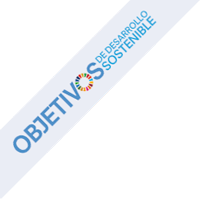
Vicente González Cano, professor and researcher of the Department of International Studies of Loyola University, is the coordinator of the project “Living Integration from the Academy”, implemented by the ETEA Foundation – Institute of Development of Loyola University in the framework of the Technical Assistance Program for the Strategic Planning of Central America – ATEPECA, of the European Union and the Central American Integration System (SICA). The project is aimed at contributing from the University to the strengthening of the Central American integration process and the generation of knowledge on the EU-Central America Association Agreement, through the generation and dissemination of research work.
Working together for integration
for sustainable development

We interviewed Vicente Gonzalez, after his recent return from the mission to initiate the project.
(P). Good morning, Vicente. A first question, almost obligatory, how do you manage to live integration from academic research?
(R). “Good morning. Of course, the slogan is very appropriate, since what we are looking for with this project is to strengthen the connection between what is being researched in the university and research centers on Central American regional integration, with the needs of the regional institutions. In this way, we intend to contribute to the definition of positions in global and regional debates, to strengthen, deepen and disseminate knowledge among society in general, interest groups and even international partners, as well as to the analysis of the objectives, instruments and impacts of policies, programs and action strategies. We want to reposition Central American Integration at the forefront of reflection and research”.
(P). How will the project contribute to such an ambitious objective?
(R). “Well, the project is structured in two key components. First, the promotion of research on Central American integration and the progress of the Association Agreement. To this end, we have planned to launch a competition for university research on topics of common interest to academia and SICA, as well as exchanges for young researchers and the organization of a “Euro-SICA session” at a leading international academic congress.
Regarding the second component, we wanted to incorporate into the project the focus on the generation and installation of capacities and knowledge on Central American integration and the progress of the Association Agreement in universities and centers of thought and research. Here we have in mind to promote a set of meetings, such as the holding of a high-level seminar on the progress, risks and potential of the Central American integration process and the Association Agreement with the EU, with the participation of representatives of top-level international research centers, as well as the co-organization of one of the face-to-face sessions of the 3rd edition of the Master’s Degree in Central American Integration and Development, a postgraduate course offered by the Central American Universities of El Salvador and Nicaragua and the Rafael Landívar University of Guatemala, and supported by the SG-SICA.”
(P). You mention the Jesuit universities of the Society of Jesus as entities participating in the project. Are there more agents involved?
(R). “Of course. On the one hand, collaboration is planned with institutions of an academic nature, such as the Central American Institute of Public Administration (ICAP), the universities of the region and the international networks of Jesuit universities in which Loyola University is integrated, especially the Central American Jesuit universities. Public institutions in the region are also involved, such as the General Secretariat of SICA (SG-SICA) and the Secretariat for Central American Economic Integration (SIECA). We also want to count on the support of key organizations in the development of Central America, such as the Spanish Agency for International Development Cooperation (AECID), through the Spain-SICA Fund, the Directorate General for Trade of the European Union (DG TRADE), or the EU-CENPROMYPE Regional Program to Support the Development of the Private Sector (ADESEP) of the European Union, among others. During the recent project start-up mission, we have held coordination meetings with the various institutions mentioned above.”


